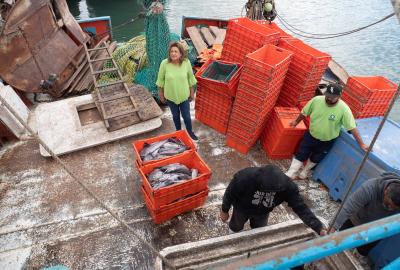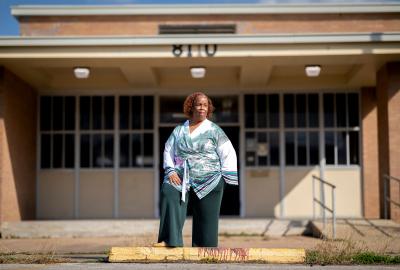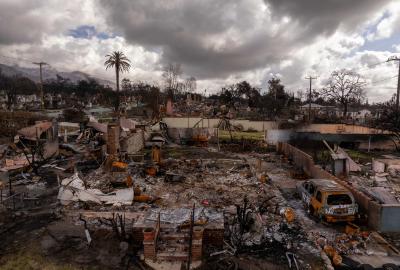Hero mom: How a cell phone video helped expose toxic pollution
On a sunny afternoon in February, Amanda Rowoldt watched as black smoke billowed from Freepoint Eco-Systems, in Hebron, Ohio. Parked about 30 yards from its smokestacks, she cracked her window open just enough to capture a video of the smoke with her cell phone. Within minutes, she was hit with a wave of intense nausea, dizziness and a stinging headache.
The plant bills itself as a recycling facility, but instead of traditional recycling, Freepoint Eco-Systems performs what the plastic industry calls "advanced recycling," which involves pyrolysis, essentially burning plastic waste.
Environmental experts say it’s not recycling at all and produces dangerous air pollution.
As Rowoldt drove home past rows of houses, she felt guilty. “I could go back home, where my kids weren’t breathing this," she says. "But what about these families?”
She described her experience and showed the video to a local official. Soon after, the Ohio EPA launched an investigation into potential violations of the facility's emissions permit.
“I’m a breast cancer survivor,” Rowoldt says. “I was 39 when I was diagnosed in 2021. My youngest son was only four. The whole experience made me question why younger people are getting cancer and what role environmental toxins might play.”

Since her diagnosis, Rowoldt has become a passionate field organizer for Moms Clean Air Force, an organization of more than 1.5 million parents united against pollution, toxic chemicals and climate change. The group shared Rowoldt’s video on social media and is working to get Freepoint Eco-Systems to install emissions controls.
For her part, Rowoldt continues to educate the public on the dangers of pollution from “advanced recycling.”
“The industry purposefully uses the word ‘recycling’ to trick people into supporting these facilities,” she says. “But advanced recycling, sometimes called chemical recycling, is essentially just burning plastic.”
“When you heat plastic, you end up with hazardous waste and air pollutants,” says Environmental Defense Fund’s chemicals expert Maria Doa. “You get benzene, you get dioxins, you get phthalates. Companies say they’re going to make building blocks for new plastics, but from this mixture it's very difficult to directly create new products.”
- Grieving mom urges lawmakers not to overturn ban on cancer-causing chemical TCE
- Plastic-burning plant pulls out of Pennsylvania community
Freepoint Eco-Systems is now under scrutiny for releasing chemicals including styrene, dioxins, and furans — all known carcinogens.
Rowoldt encourages others who see pollution to document and report it. “Never underestimate how much power you have,” she says.


